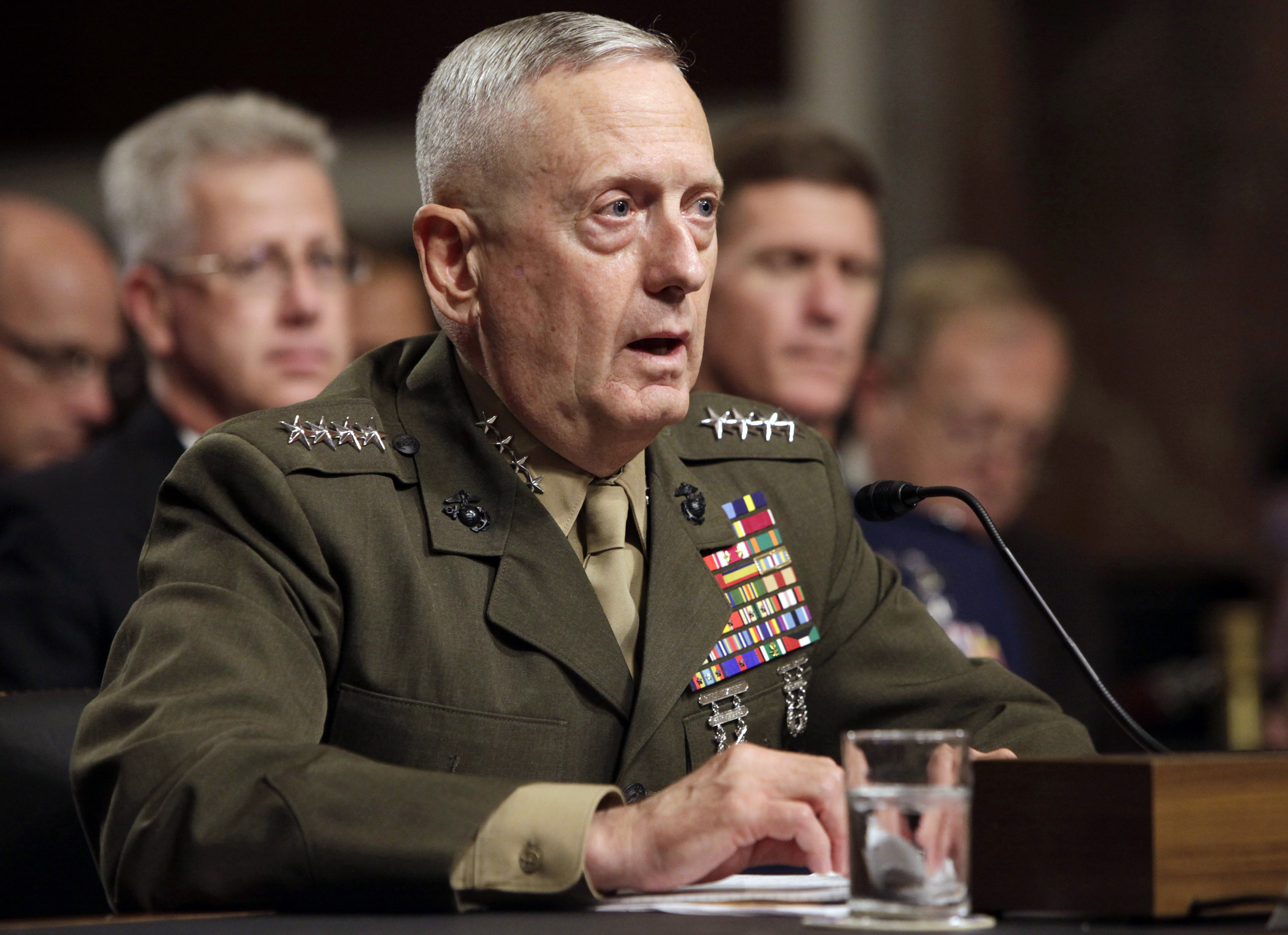A book by former Defense Secretary and retired Marine general James Mattis was released Tuesday that in part criticizes former President Barack Obama’s strategic thinking on foreign policy and national defense.
“Call Sign Chaos: Learning to Lead” accuses Obama of making “catastrophic decisions” in Iraq, according to a review in the Washington Examiner. Mattis reportedly claims those choices were based on his own innate sense that he knew better and understood the strategic landscape in a more nuanced fashion than his military and foreign policy advisors.

Former U.S. President Barack Obama delivers his keynote speech to the Montreal Chamber of Commerce at the Palais de Congres in Montreal, Quebec, Canada June 6, 2017. REUTERS/Dario Ayala
“At the top, then as now, there was an aura of omniscience. The assessments of the intelligence community, our diplomats, and our military had been excluded from the decision-making circle,” Mattis writes, according to the Examiner. (RELATED: Mattis Retires From Trump Administration)
Mattis was the commander of U.S. Central Command (CENTCOM) from 2010-2013, where he learned firsthand of Obama’s alleged tendency to think words alone could transform political reality around the world and win military victories. Mattis points out in his book, “rhetoric doesn’t end conflicts.”
Mattis has been reticent about criticizing Obama, but did so in 2017 when he told a small Washington state newspaper that the Trump administration was conducting its military policy that was “dramatically different” from the previous one. Mattis was also critical of Obama’s ISIS policy in Syria, telling Time Magazine “the current U.S. effort against ISIS is unguided by a sustained policy or sound strategy [and] replete with half-measures.”

General James Mattis testifies before the Senate Armed Services Committee hearing on Capitol Hill in Washington July 27, 2010, on his nomination to be Commander of U.S. Central Command. REUTERS/Yuri Gripas
The retired general encapsulates his three-year stint at CENTCOM as an exercise in misspent energy.
“It was to be a time when I would witness duty and deceit, courage and cowardice, and, ultimately, strategic frustration,” he writes.
“In Washington, the debate swirled throughout 2011 about how many, if any, U.S. troops should remain in Iraq,” Mattis relates, as he suggests the Obama administration always sought to look like they were managing Iraq without actually sending in the requisite troops.
“Central Command, the Chairman of the Joint Chiefs, and the new Defense Secretary, Leon Panetta, who had replaced Bob Gates, continued to recommend to the White House retaining a residual force, as did Secretary of State Hillary Clinton,” Mattis writes, according to the Examiner, adding that this was nothing but “talking to the wind.”
Obama “dealt with Iraq as a ‘one-off,’ as if the pullout of our troops there would have no regional implications, reinforcing our allies’ fears that we were abandoning them,” he continues. “I argued strongly that any vacuum left in our wake would be filled by Sunni terrorists and Iran.” (RELATED: Here’s What Defense Secretary James Mattis Told Troops At The Border)
Mattis believes history has proven him right. Obama might have said the fighting was finished, but “Iraq slipped back into escalating violence. It was like watching a car wreck in slow motion,” Mattis argues. “All of this was predicted — and preventable.”
“It’s frustrating to listen to any leader blame his predecessor, especially a political leader regarding a situation that he knew existed when he ran for office,” Mattis writes, according to the Examiner, referring to Obama’s dismissal of George W. Bush as an ineffective president. “Wise leadership requires collaboration; otherwise it will lead to failure.”
Matties left the Trump administration after having reported policy differences with President Donald Trump. He mentions the current commander in chief in the book’s introduction — as Mattis promised when he announced that he wasn’t writing a tell-all book about the Trump administration.


